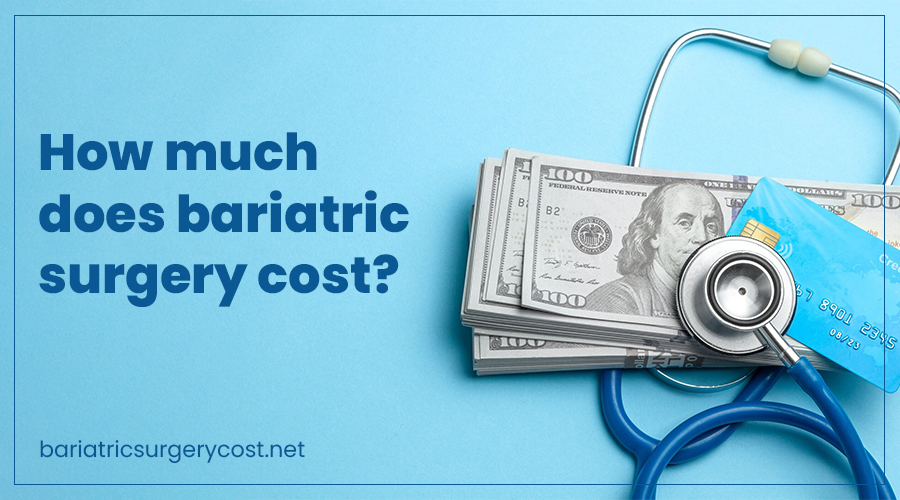What is the cost of laparoscopic bariatric surgery?
Bariatric surgery, also known as weight loss surgery, is a surgical procedure that helps severely overweight or obese individuals lose …

Bariatric surgery is one of the most effective long-term weight loss procedures, but it comes at a high price. Before electing to undergo bariatric surgery, it is crucial to investigate other methods for long-term weight loss and to be informed of the accompanying costs. This article examines the cost of bariatric surgery, what is included in the cost, and what other considerations you must make prior to committing to the treatment. We will also review the types of bariatric procedures that are available, the dangers involved with the treatment, and the postoperative care you will require. Those who are substantially overweight or obese may find bariatric surgery to be a safe and life-altering option with the correct information and support.
Bariatric surgery is a form of weight-loss surgery that modifies the method in which the body absorbs food and calories. It can be performed either laparoscopically or openly. Minimally invasive laparoscopic surgery is conducted using small incisions. During an open operation, a larger incision is made. Both varieties have their own unique advantages and disadvantages. During your initial session, a surgeon will address these with you. Based on your health, age, and body type, the surgeon will also explain the optimal sort of surgical operation for you. A section of the stomach is removed or redirected during bariatric surgery to create a smaller stomach. This implies that less food is required to achieve satiety and that fewer calories are absorbed from the food consumed. Additionally, surgery may reroute the small intestine to shorten or narrow it. This can speed up the movement of food through the digestive tract. These adjustments help you lose weight by reducing the quantity of food your body can absorb.
The cost of bariatric surgery varies based on the type of procedure and the surgeon who does it. It is also crucial to understand that some health insurance plans cover the cost of bariatric surgery. Before undergoing surgery, check with your insurance provider to determine whether and how the operation is covered. If your health insurance does not cover the cost of surgery, you have numerous options for financing the procedure. These include private lender financing, credit cards, online loans, and financing programs for bariatric surgery. Bariatric surgery is significantly more expensive than other methods of weight loss. This is due to the fact that surgery is a permanent weight loss option, as opposed to more temporary weight loss measures such as diets and exercise. Depending on the type of procedure, the price of surgery might range between $10,000 and $40,000.
When discussing the price of surgery, it is essential to comprehend what is included in the price. There are three components to the cost of surgery: the surgeon’s charge, the hospital or facility price, and the anesthetic expense. The surgeon’s charge will vary based on the type of surgery performed, the surgeon’s level of expertise, and your geographic location. The hospital or facility fee will cover the cost of your hospital room, nursing staff, and any necessary medical equipment. The anesthesia charge represents the cost of administering a general anesthetic during surgery. Other expenditures involved with bariatric surgery include transportation and lodging for your journey to the surgeon’s office, prescription medicine, nutritional supplements, and the cost of continued follow-up treatment following the procedure.
There are numerous forms of bariatric surgery that can be performed to aid with weight loss. Your choice of weight reduction surgery will rely on your unique health, body type, and weight loss objectives. The following are the most prevalent types of bariatric surgery: – Gastric bypass surgery entails rerouting a piece of the stomach and linking it to the small intestine’s first section. This results in a smaller stomach, hence reducing the amount of food that can be taken at each meal. This treatment involves the removal of a part of the stomach, resulting in a smaller stomach that can hold less food. This allows the patient to feel full quicker and absorb less calories from the meal consumed. This procedure reroutes the stomach and the first portion of the small intestine. Additionally, the duodenum is redirected and joined to the small intestine’s lower portion. The duodenal switch operation is often referred to as a RYGB operation. – Gastric band: In this procedure, an inflatable band is inserted into the stomach to create a smaller stomach. The band is attached to a port or access point beneath the skin and can be inflated or deflated to regulate the amount of food the stomach can contain.
The hazards associated with bariatric surgery must be considered, as it is an invasive procedure. Fluid and blood clot retention, internal bleeding, infection, irregular wound healing, and vitamin and mineral deficits are some of the most common hazards linked with bariatric surgery. Hernia formation, stomach ulcers, starvation, and anemia are further potential concerns. It is crucial that you are aware of the risks connected with surgery and have a support system in place to assist you deal with any potential consequences. If you are seriously considering bariatric surgery, you should ensure that your health is sufficient for the treatment. The surgeon will assess your health and determine whether or not you are a suitable candidate for surgery. The surgeon will consider your general health, age, nutritional intake, and body mass index.
You will want to ensure that you have a robust support structure in place prior to surgery. You will be able to make a decision that is suitable for you and your health while taking into account your other duties if you have help. It is essential to have an open and honest discussion with your loved ones regarding your decision to have surgery. You will be better supported and prepared for surgery if you comply with these instructions. You will want to ensure that you have a robust support structure in place after surgery. Having a solid support system will assist you in adjusting to life with a smaller stomach and managing any issues that may arise. It is crucial to locate a support system that will enable you to make great changes in your life and feel secure about your choice. Having the correct support system in place will assist you in maximizing your weight reduction surgery and achieving long-term success.
Although bariatric surgery is one of the most efficient methods for long-term weight loss, it is crucial to keep in mind that it is a serious procedure that carries the risk of consequences. Before committing to surgery as a long-term solution for weight loss, it is essential to investigate alternative long-term weight loss solutions. Diet modification is an often-overlooked solution. By consuming healthy meals, you can limit your caloric intake and begin to lose weight gradually. Additionally, you should consider modifying your exercise regimen to lower your daily caloric consumption. By moving more and consuming fewer calories, it is possible to start losing weight. It is essential to remember that losing weight takes time and that there is no quick fix. It will require dedication and effort to progressively lose weight. By implementing these dietary and exercise modifications, you can achieve long-term weight loss success.
Bariatric surgery is a serious procedure that should be utilized as a long-term weight loss strategy. Depending on the type of surgery, the price might range between $10,000 and $40,000, which is much higher than other weight loss methods. Before committing to bariatric surgery, it is crucial to understand what is included in the cost, what other options exist for long-term weight loss, and the dangers connected with the treatment. Having a robust support structure in place will assist you in maximizing your weight reduction surgery and achieving long-term success.

Bariatric surgery, also known as weight loss surgery, is a surgical procedure that helps severely overweight or obese individuals lose …

Bariatric surgery, also known as weight loss surgery, is a medical procedure that assists severely obese individuals in losing weight …

Bariatric surgery, also known as weight loss surgery, is a medical procedure that aims to assist individuals struggling with obesity …

Bariatric surgery, also known as weight loss surgery, is a medical procedure that assists obese people in achieving substantial weight …

Are you having trouble losing weight and considering bariatric surgery? So, I’ve got some exciting news for you! Medicare may …

Are you fed up with battling your weight? Have you tried every diet and exercise routine available, but nothing works? …

Are you ready to embark on a life-changing journey towards a healthier, happier you? Well, look no further because bariatric …

Bariatric revision surgery can be a life-changing procedure for individuals who have previously undergone weight loss surgery but have experienced …

If you’re considering bariatric surgery to lose weight and improve your health, you’re probably wondering how much it would cost. …

Are you exhausted from attempting every fad diet and exercise program without attaining your weight loss objectives? If so, bariatric …